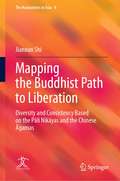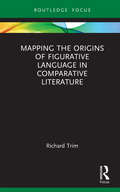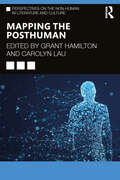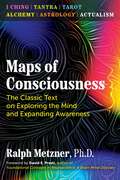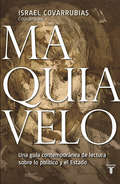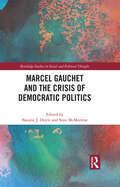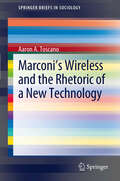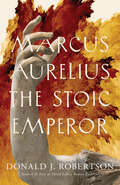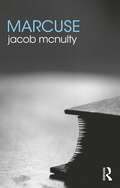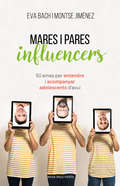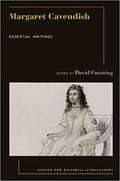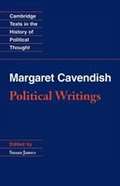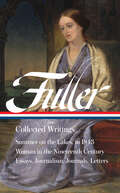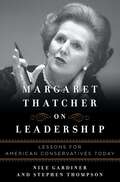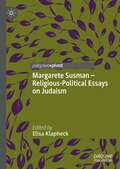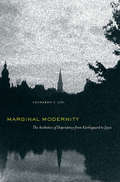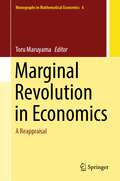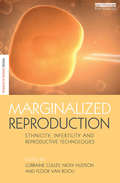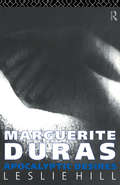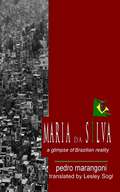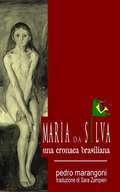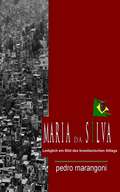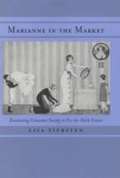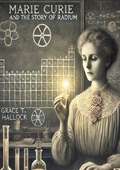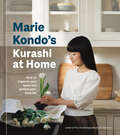- Table View
- List View
Mapping the Buddhist Path to Liberation: Diversity and Consistency Based on the Pāli Nikāyas and the Chinese Āgamas (The Humanities in Asia #9)
by Jianxun ShiDue to the diversity in Buddhism, its essence remains a puzzle. This book investigates the Buddhist path to liberation from a practical and critical perspective by searching for patterns found in the Pāli Nikāyas and the Chinese Āgamas. The early discourses depict the Buddhist path as a network of routes leading to the same goal: liberation from suffering. This book summarizes various teachings in three aspects, provides a template theory for systematically presenting the formulas of the sequential training of the path, and analyses the differences and similarities among diverse descriptions of the path in the early Buddhist texts. By offering a comprehensive map of the Buddhist path, this book will appeal to scholars and students of Buddhist studies as well as those practitioners with a serious interest in the Buddhist path.
Mapping the Origins of Figurative Language in Comparative Literature (Routledge Focus on Literature)
by Richard TrimThis book investigates the origins of figurative language in literary discourse within a cognitive framework. It represents an interface between linguistics and literature and develops a 6-tier theoretical model which analyses the different factors contributing to the creation of figurative words and expressions. By examining features ranging from language structure to figurative thought, cultural history, reference, narrative and the personal experience of authors, it develops a global overview of the processes involved. Due to its particularly innovative characteristics in literature, the theme of death is explored in relation to universal concepts such as love and time. These aspects are discussed in the light of well-known authors in comparative literature such as D.H. Lawrence, Simone De Beauvoir, Hermann Hesse and Jorge Luis Borges. The origins can involve complex conceptual mappings in figures of speech such as metaphor and symbolism. They are often at the roots of an author’s personal desires or represent the search for answers to human existence. This approach offers a wide variety of new ideas and research possibilities for postgraduate and research students in modern languages, linguistics and literature. It would also be of interest to academic researchers in these disciplines as well as the general public who would like to delve deeper into the relevant fields.
Mapping the Posthuman (Perspectives on the Non-Human in Literature and Culture)
by Grant Hamilton and Carolyn LauThis book works to delineate some of the major routes by which science and art intersect. Structured according to the origin myths of the posthuman that continue to shape the idea of the human in our technological modernity, this volume gives space to narratives of alter-modernity that resonate with Ursula K. Le Guin’s call for a new kind of story which exposes the violence and exploitation driven by a sustained belief in human exceptionalism, anthropocentrism, and cultural superiority. In this context, the posthuman myths of multispecies flourishing given in this collection, which are situated across a range of historical times and locations, and media and modalities, are to be thought of as kernels of possible futures that can only be realized through collective endeavour.
Maps of Consciousness: The Classic Text on Exploring the Mind and Expanding Awareness
by Ralph MetznerA classic guide to expanding perception and consciousness development• Explores six ancient yet timeless systems for exploring the mind: the I Ching, Tantra, Tarot, astrology, alchemy, and the yoga philosophy of Actualism • Shares exercises from each system and illuminates the key stages in the journey of consciousness development • Shows how each of these disciplines can help you become a fully aware and conscious participant in your own spiritual evolution In this highly acclaimed classic, psychedelic elder Ralph Metzner presents a guide to six ancient systems, once known only to the initiated few, to expand awareness and free your consciousness from exterior limitations and cultural conditioning. Metzner begins with the I Ching, revered by the Chinese as the oldest and wisest book in the world. He explains how it reveals change as the evolutionary constant and offers a hands-on method of divination and guidance. He explores the Hindu and Buddhist Tantras of medieval India, ancient practices celebrating the union of male and female energies that transmute ordinary sense experience into ecstatic ritual worship. He examines the Tarot, revealing how the cards act as culture-transcending mirrors, bringing us through worlds of darkness and light in a complex journey. He looks at the practice of alchemy, explaining how it is a &“psychic chemistry&” of inner union through which we can transform planetary and cosmic energies. He explores the esoteric aspects of astrology, revealing the rhythmic cycles of the planets and how their phases may be experienced in terms of motion and emotion. He then examines in depth the yoga philosophy of Actualism, centered on the techniques of Agni Yoga, which allow you to use your living &“inner fire&” to illuminate the shadow parts of consciousness and burn out that which obstructs the free flow of energy. With a new foreword by UC Berkeley professor of neurobiology David E. Presti and featuring all of the original diagrams, this edition of Metzner&’s classic text shows how each of these disciplines can help the modern individual become a fully aware and conscious participant in their own spiritual evolution.
Maquiavelo: Una guía contemporánea de lectura sobre la política y el Estado
by Israel CovarrubiasPodemos criticar a Maquiavelo e incluso mostrar sus limitaciones, pero no puede estudiarse política sin comenzar por él. Vilipendiado por la Iglesia, tergiversado por estadistas y líderes sociales, reconocido como fuente primigenia de la política moderna, Nicolás Maquiavelo goza de ese raro privilegio de no sucumbir a la usura del tiempo. La vida -y sobre todo la obra del florentino- muestra una vigencia creciente. Autor necesario para cualquier curso de teoría política, su obra en conjunto muestra los ángulos clave del precioso arte de la vida en común, por lo que acercarse a él se vuelve una fuente obligada de conocimiento y reflexión creativa. Maquiavelo. Una guía contemporánea de lectura sobre lo político y el Estado es un estudio colectivo que analiza uno de los conflictos centrales de la cosa pública desde el siglo XVI: el desarrollo histórico de aquello que a partir de entonces comenzamos a llamar Estado. Ofrece, además, herramientas conceptuales, históricas y politológicas para ir al encuentro de la figura y la obra de Maquiavelo y su tiempo. Podemos criticarlo, desarticular la lógica de los distintos regímenes de su discurso, incluso mostrar sus limitaciones «científicas», pero no podemos comenzar sin él.
Marcel Gauchet and the Crisis of Democratic Politics (Routledge Studies in Social and Political Thought)
by Natalie J. DoyleThis book presents, for the first time in the English language, Marcel Gauchet’s interpretation of the challenges faced by contemporary Western societies as a result of the crisis of liberal democratic politics and the growing influence of populism. Responding to Gauchet’s analysis, international experts explore the depoliticising aspects of contemporary democratic culture that explain the appeal of populism: neo-liberal individualism, the cult of the individual and its related human rights, and the juridification of all human relationships. The book also provides the intellectual context within which Gauchet’s understanding of modern society has developed—in particular, his critical engagement with Marxism and the profound influence of Cornelius Castoriadis and Claude Lefort on his work. It highlights the way Gauchet’s work remains faithful to an understanding of history that stresses the role of humanity as a collective subject, while also seeking to account for both the historical novelty of contemporary individualism and the new form of alienation that radical modernity engenders. In doing so, the book also opens up new avenues for reflection on the political significance of the contemporary health crisis. Marcel Gauchet and the Crisis of Democratic Politics will be of great interest to scholars and postgraduate students of social and political thought, political anthropology and sociology, political philosophy, and political theory.
Marconi's Wireless and the Rhetoric of a New Technology
by Aaron ToscanoThis book examines the discourse surrounding the wireless, created by the Anglo-Italian inventor Guglielmo Marconi. The wireless excited early twentieth-century audiences before it even became a viable black box technology. The wireless adhered to modernist values--speed, efficiency, militarization, and progress. Language surrounding the wireless is a form of technical communication, overlooked by today's practitioners. This book establishes a broader definition for technical communication by examining a selection of the discourse surrounding Marconi's wireless. The book's main themes are the following: 1) technical communication is all discourse surrounding technology, 2) the field of technical communication (or technical writing) should incorporate analyses of discourse surrounding technologies into its epistemology, 3) the wireless is a product of the society from which it comes (early twentieth-century Western civilization), and 4) the discourse surrounding the wireless is infused with tropes of progress--speed, efficiency, evolution, and ahistoricity.
Marcus Aurelius: The Stoic Emperor (Ancient Lives)
by Donald J. RobertsonExperience the world of Roman emperor Marcus Aurelius and the tremendous challenges he faced and overcame with the help of Stoic philosophy This novel biography brings Marcus Aurelius (121–180 CE) to life for a new generation of readers by exploring the emperor&’s fascinating psychological journey. Donald J. Robertson examines Marcus&’s relationships with key figures in his life, such as his mother, Domitia Lucilla, and the emperor Hadrian, as well as his Stoic tutors. He draws extensively on Marcus&’s own Meditations and correspondence, and he examines the emperor&’s actions as detailed in the Augustan History and other ancient texts. Marcus Aurelius struggled to reconcile his philosophy and moral values with the political pressures he faced as emperor at the height of Roman power. Robertson examines Marcus&’s attitude toward slavery and the moral dilemma posed by capturing enemies in warfare; his attitude toward women; the role of Stoicism in shaping his response to the threat of civil war; the treatment of Christians under his rule; and the naming of his notorious son Commodus as his successor. Throughout, the Meditations is used to shed light on the mind of the emperor—his character, values, and motives—as Robertson skillfully weaves together Marcus&’s inner journey as a philosopher with the outer events of his life as a Roman emperor.
Marcuse (The Routledge Philosophers)
by Jacob McNultyHerbert Marcuse (1898-1979) is known to many as a leading figure of 1960s counterculture, and a "Guru of the New Left."However, the deeper philosophical background to Marcuse's thought is often forgotten, especially his significant engagement with German idealism, ancient philosophy, and a broad spectrum of problems and issues from the philosophical tradition.This much-needed book introduces and assesses Marcuse's philosophy and is ideal for those coming to his work for the first time. Jacob McNulty covers the following topics: Marcuse's life and the background to his thought, including his formative period as a student of Husserl and Heidegger and as a philosopher in Horkheimer's Institute Marcuse's recasting of metaphysics in light of Marxian and Freudian thought Marcuse and German idealism, especially the role of Kant and Hegel Marcuse's philosophy of human nature, his use of the late Freud's ideas of Eros and Thanatos Marcuse as a critic of state and monopoly capitalism Meaning, propaganda, and ideology: the political implications of language and also the centrality of free speech Marcuse's aesthetics Marcuse's legacy and his relationship to contemporary analytical philosophy (especially "analytic critical theory"). An outstanding and engaging introduction to a central figure in twentieth-century radical thought, Marcuse is essential reading for those in philosophy and related disciplines including political theory, sociology, and media and communication studies.
Mares i pares influencers: 50 eines per entendre i acompanyar adolescents d'avui
by Eva Bach Montse Jiménez«Estàs a punt de llegir un llibre que et farà feliç.» Jaume Funes Aquest llibre s'adreça a qualsevol persona que tingui adolescents a prop i que vulgui viure més agradablement aquesta etapa de la vida, tan meravellosa com desconcertant. Mitjançant 50 idees, les autores ens mostren com obrir-nos a noves maneres d'entendre la vida, les relacions, els estudis, l'amor, la sexualitat, l'amistat, la felicitat, les emocions, els valors, les prioritats, el futur i tot un seguit de temes que ens descol·loquen perquè capgiren els nostres plantejaments. Partint de la seva experiència com a mares i educadores, així com de les aportacions de professionals de diversos àmbits, i després d'escoltar a més de 1.500 joves, l'Eva Bach i la Montse Jiménez ens ajuden a actualitzar-nos i ens ofereixen orientació i recursos per arribar als cor dels adolescents i de les adolescents, i convertir-nos així en la seva millor influència.
Margaret Cavendish: Essential Writings (Oxford New Histories Of Philosophy)
by David CunningThe Seventeenth-Century philosopher, scientist, poet, playwright, and novelist Margaret Cavendish went to battle with the great thinkers of her time, and arguably got the better of them in many cases. She took a creative and systematic stand on the major questions of philosophy of mind, epistemology, metaphysics, and political philosophy. She argued that human beings and all other members of the created universe are purely material creatures, and she held that there are many other ways in which creatures are alike as well: for example, human beings, non-human animals, spiders, cells, and all other beings exhibit skill, wisdom, and activity, and so the universe of matter is not the largely dead and unimpressive region that most of her contemporaries thought it to be. Creatures instead are sophisticated and display a wide spectrum of intelligent activity, ranging from the highly conscious mentality that Descartes posited to be part and parcel of human thought, to embodied forms of cognition that is more common in non-human creatures but that guide a significant portion of human behavior as well. Cavendish then used her fictional work to further illustrate her views and arguments, and also to craft alternative fictional worlds in which the climate for women was very different than on Seventeenth-Century earth - a climate in which women could be taken seriously in the role of philosopher, writer, scientist, military general, and other roles. <P><P> This is the first volume to provide a cross-section of Cavendish's writings, views and arguments, along with introductory material. It excerpts the key portions of all her texts including annotated notes highlighting the interconnections between them. Including a general introduction by Cunning, the book will allow students to work toward a systematic picture of Cavendish's metaphysics, epistemology, and political philosophy (and including some of her non-philosophical work as well) and to see her in dialogue with philosophers who are part of the traditional canon.
Margaret Cavendish: Political Writings (Cambridge Texts in the History of Political Thought)
by Margaret Cavendish Susan JamesMargaret Cavendish, Duchess of Newcastle, published a wide variety of works including poems, plays, letters and treatises of natural philosophy, but her significance as a political writer has only recently been recognised. <P><P>This major contribution to the series of Cambridge Texts includes the first ever modern edition of her Divers Orations on English social and political life, together with a new student-friendly rendition of her imaginary voyage, A New World called the Blazing World. Susan James explains the allusions made in this classic text, and directs readers to the many intellectual debates with which Cavendish engages. Together these two works reveal the character and scope of Margaret Cavendish's political thought. She emerges as a singular and probing writer, who simultaneously upholds a conservative social and political order and destabilises it through her critical and unresolved observations about natural philosophy, scientific institutions, religion, and the relations between men and women.
Margaret Fuller: Collected Writings (LOA #388)
by Margaret Fuller&“Humanity can be divided into three classes: men, women, and Margaret Fuller.&”—Edgar Allan PoeA true American original—radical transcendentalist, intrepid journalist, and pioneering feminist—joins Library of America with the most authoritative single-volume collection of her writings ever, including many rare and previously unpublished works, newly transcribed from original notebooks and journalsTranscendentalist, journalist, feminist, activist, public intellectual, war correspondent, poet: Margaret Fuller&’s achievement in her short life was as diverse, wide-ranging, and radical as her multi-generic writings. Now, at long last, this pioneering writer joins Library of America with the most comprehensive and most authoritative version of her writings ever published.Here are her two best-known books: Summer on the Lakes, in 1843, an account of her travels to the Great Lakes, a plea for better treatment of the American Indian peoples, and a sketchbook of Fuller&’s thought; and Woman in the Nineteenth Century, the foundational document of American feminism and the first major work on women&’s rights since Wollstonecraft&’s A Vindication of the Rights of Woman fifty-three years earlier.Joining them are a generous selection of Fuller&’s published essays and journalism, including &“American Literature&” and her reviews and columns for the New York Tribune, as well as her war correspondence from besieged Rome in 1849; unpublished writings and selections from Fuller&’s journals, many previously unknown and newly transcribed for this volume; and a selection of Fuller&’s letters, including three newly translated from the original Italian.Rounding out the volume are a chronology by Fuller&’s biographer Megan Marshall, along with helpful notes identifying Fuller&’s many allusions and quotations, and an index.
Margaret Thatcher on Leadership: Lessons for American Conservatives Today
by Stephen Thompson Nile GardinerThis inspirational and practical guide for conservatives combines stories from Lady Thatcher's life with principles and strategies conservatives can apply to their challenges today. Nile Gardiner and Stephen Thompson outline the critical lessons conservatives can learn from Lady Thatcher on articulating conservative principles to a broader audience, cutting through bureaucratic messes to achieve goals, and standing up to aggressive regimes.
Margarete Susman - Religious-Political Essays on Judaism (Jewish Thought and Philosophy)
by Elisa KlapheckMargarete Susman was among the great Jewish women philosophers of the twentieth century, and largely unknown to many today. This book presents, for the first time in English, six of her important essays along with an introduction about her life and work. Carefully selected and edited by Elisa Klapheck, these essays give the English-speaking reader a taste of Susman’s religious-political mode of thought, her originality, and her importance as Jewish thinker. Susman's writing on exile, return, and the revolutionary impact of Judaism on humanity, illuminate enhance our understanding of other Jewish philosophers of her time: Martin Buber, Franz Rosenzweig, and Ernst Bloch (all of them her friends). Her work is in particularly fitting company when read alongside Jewish religious-political and political thinkers such as Bertha Pappenheim, Hannah Arendt, Simone Weil, and Gertrud Stein. Initially a poet, Susman became a follower of the Jewish Renaissance movement, secular Messianism, and the German Revolution of 1918. This collection of essays shows how Susman's work speaks not only to her own time between the two World Wars but to the present day.
Marginal Modernity: The Aesthetics of Dependency from Kierkegaard to Joyce
by Leonardo F. LisiTwo ways of understanding the aesthetic organization of literary works have come down to us from the late 18th century and dominate discussions of European modernism today: the aesthetics of autonomy, associated with the self-sufficient work of art, and the aesthetics of fragmentation, practiced by the avant-gardes. In this revisionary study, Leonardo Lisi argues that these models rest on assumptions about the nature of truth and existence that cannot be treated as exhaustive of modernist form.Lisi traces an alternative aesthetics of dependency that provides a different formal structure, philosophical foundation, and historical condition for modernist texts. Taking Europe's Scandinavian periphery as his point of departure, Lisi examines how Søren Kierkegaard and Henrik Ibsen imagined a response to the changing conditions of modernity different from those at the European core, one that subsequently influenced Henry James, Hugo von Hofmannsthal, Rainer Maria Rilke, and James Joyce.Combining close readings with a broader revision of the nature and genealogy of modernism, Marginal Modernity challenges what we understand by modernist aesthetics, their origins, and their implications for how we conceive of our relation to the modern world.
Marginal Revolution in Economics: A Reappraisal (Monographs in Mathematical Economics #6)
by Toru MaruyamaThis volume is devoted to a reappraisal of the Marginal Revolution on the occasion of its 150th anniversary. The year 1871 should be remembered as one of the most important turning points in the history of economics. W. S. Jevons, C. Menger, and L. Walras published epochal works at the very beginning of the 1870s. Although these works were written independently, they shared a common mathematical structure based on classical analysis. For this reason, the emergence of the trio is called the Marginal Revolution. Indeed, 1871 is the starting point of modern economics in the proper sense. In 1971, several academic conferences were held on the occasion of the 100th anniversary of the Revolution, which exerted the stimulating influence upon the historical researches into the Revolution. Now more than fifty years have passed since then. Economic theory has experienced further substantial changes in researchers’ central interest, the way of reasonings and the styles of description during this period. In view of the new achievements acquired in recent fifty years, it seems an indispensable task for us to review and reevaluate the Marginal Revolution based upon the present status of economics.We also keep in mind that some concepts and doctrines once discarded could reappear in a later stage of history in a more or less transfigured form. The introductory chapter will be a guide for readers not only from the economics community but also from the mathematics community.
Marginalized Reproduction: Ethnicity, Infertility and Reproductive Technologies (The Earthscan Science in Society Series)
by Lorraine Culley Nicky Hudson Floor Van RooijWorldwide, over 75 million people are involuntarily childless, a devastating experience for many with significant consequences for the social and psychological well-being of women in particular. Despite greater levels of infertility and strong cultural meanings attached to having children, little attention has been paid politically or academically to the needs of minority ethnic women and men. This groundbreaking volume is the first to highlight the ways in which diverse ethnic, cultural and religious identities impact upon understandings of technological solutions for infertility and associated treatment experiences within Western societies. It offers a corrective to the dominance of the narratives of hegemonic groups in infertility research. The collection begins with a discussion of fertility prevalence and access to treatment for minorities in the West and considers some of the key methodological challenges for social research on ethnicity and infertility. Drawing on primary research from the US, the UK, Eire, Germany, the Netherlands and Australia, the book then turns the spotlight onto the ways in which minority status and cultural and religious mores might impact on the experience of infertility and assisted reproductive technologies. It argues that more equitable access to culturally competent assisted conception services should be an essential component of a transformatory politics of infertility.
Marguerite Duras: Apocalyptic Desires
by Leslie HillMarguerite Duras is France's best-known and most controversial contemporary woman writer. Duras' influence extends from her early novels of the 1950's to her radically innovative experimental autobiographical text of the 1980's The Lover Leslie Hill's book throws new light on Duras' relationship to feminism, psychoanalysis, sexuality, literature, film, politics, and the media. Feted by Kristeva, and Laca who claimed her as almost his other self, Duras is revealed to be a profoundly transgressive thinker and artist. It will be a must for all concerned with contemporary writing, writing by women, recent European cinema, film and literature.
Maria da Silva - A glimpse of Brazilian reality
by Pedro Marangoni Lesley SoglA glimpse of Brazil's harsher side. This is a story about a young girl's daily struggle to survive among the damned and forgotten of a favela. Her search to find a friend and a place of hope in a dark, cruel and pitiless world.
Maria da Silva - Una cronaca brasiliana
by Sara Zampieri Pedro MarangoniNon si può affermare che Maria da Silva sia un lavoro di finzione, perché è una cronaca del quotidiano senza ritocchi. Un piccolo libro sulla vita breve di una rivenditrice di spazzatura. Qui non ci sono descrizioni superflue, così l'immaginazione del lettore, mentre legge il romanzo, comporrà l'ambiente con lo scenario che conosce, che si svolge vicino a lui, che visualizza giorno per giorno e le cui dinamiche gli sono ignote. Le "Maria da Silva" muoiono quotidianamente di inedia e di malattie non curate, in un breve e tragico cammino di vita, portando con sé un'intera storia ignorata dai più. È ora di vederle come esseri umani, e questo piccolo libro può aiutare. Sento che l'opera non è mia, io sono solo un tramite del messaggio di Maria da Silva. Credo che se qualche lettore cambierà dopo averla conosciuta, che sia solo nello sguardo che lancia ai senzatetto che rivendono spazzatura -che estraggono quello che viene disprezzato, senza elemosinarlo- la missione che mi è stata assegnata dal caso sarà compiuta.
Maria da Silva: Lediglich ein Bild des brasilianischen Alltags
by Pedro MarangoniMan kann "Maria da Silva" nicht als Science-Fiction bezeichnen, weil es ein Porträt des Alltags ist, ohne zu beschönigen. Ein kleines Buch über die kurze Lebensdauer einer Müllsammlerin. Hier gibt es keine überflüssigen Beschreibungen, so dass die Phantasie des Lesers die Umgebung zusammenfügen muss, indem er das Drama im Rahmen der Szene liest, die er kennt, die sich in seiner Nähe abspielt, die er im Alltag visualisiert und deren Herz er nicht kennt. "Marias da Silva" sterben täglich an Hunger und unbehandelten Krankheiten in einer kurzen und tragischen Reise des Lebens, und bergen darin eine ganze Geschichte, die von anderen Mitbürgern ignoriert wird. Es ist an der Zeit, sie als menschliche Wesen zu sehen, und dieses kleine Buch kann dabei helfen. Ich habe das Gefühl, dass das Werk nicht mir gehört, ich bin nur der Moderator der Botschaft von Maria da Silva. Ich glaube, wenn sich einige Leser ändern, nachdem sie dies kennengelernt haben, und sei es nur, dass sich der Ausdruck ihres Blickes auf die Müllsammler ändert - die das Verabscheute sammeln und nicht betteln - wird die mir zufällig anvertraute Mission erfüllt sein ...
Marianne in the Market: Envisioning Consumer Society in Fin-de-siecle France
by Lisa TierstenA study of the transformation of consumerism in 19th century France and its effect on women.
Marie Curie and the Story of Radium
by Grace T. HallockDiscover the inspiring life and groundbreaking achievements of one of history's most remarkable scientists with Grace T. Hallock's Marie Curie and the Story of Radium. This captivating short biography brings to life the story of Marie Curie, a pioneering physicist and chemist whose discovery of radium revolutionized the scientific world and changed the course of medical research.Grace T. Hallock chronicles Marie Curie's journey from her humble beginnings in Poland to her monumental scientific achievements in France. Through vivid storytelling Hallock highlights Curie's relentless dedication, intellectual brilliance, and unwavering perseverance in the face of numerous challenges.Marie Curie and the Story of Radium delves into Curie's groundbreaking work on radioactivity, which earned her two Nobel Prizes in Physics and Chemistry—making her the first person to ever achieve such a feat. Hallock explores the significance of Curie's discoveries and their profound impact on science and medicine, including the development of cancer treatments and advancements in nuclear physics.The short book also provides a glimpse into Curie's personal life, including her partnership with her husband, Pierre Curie, and her role as a mother. Hallock portrays Curie as a multifaceted individual, balancing her scientific pursuits with her responsibilities and navigating the complexities of a male-dominated field.Join Grace T. Hallock in celebrating the life of Marie Curie and uncover the fascinating story behind one of the most significant scientific discoveries of the modern era. Marie Curie and the Story of Radium is a timeless account of curiosity, courage, and the pursuit of knowledge.
Marie Kondo's Kurashi at Home: How to Organize Your Space and Achieve Your Ideal Life (The Life Changing Magic of Tidying Up)
by Marie KondoTransform your home into a haven of calm and achieve your ideal lifestyle with this inspirational visual guide featuring more than 100 photographs, from the Netflix star and #1 bestselling author of The Life-Changing Magic of Tidying Up. Inspired by the Japanese concept of kurashi, or &“way of life,&” Kurashi at Home invites you to visualize your best life from the moment you wake up until the end of each day. By applying Marie Kondo's time-tested query—&“Does it spark joy?&”—to your mindset and behaviors, you are invited to take an even more holistic and personal approach to curating your environment by imagining what your life could look like full of connection and free from any limitations. This ideal vision then becomes a touchpoint that helps you make conscious, mindful choices—from how you use every corner of your living space to how you take advantage of every moment. At its core, the KonMari philosophy focuses not on what to get rid of, but on what sparks joy in your life. In this inspirational visual guide, beautiful photographs and Kondo's unique suggestions empower you to embrace what you love about your life and then reflect it in your home, activities, and relationships, like creating a calm nook for working, scheduling weekly get-togethers with family or friends, or having relaxing nighttime rituals that promote a restful sleep. Your newfound clarity will inspire you to clear out the unneeded clutter so you can appreciate the inviting spaces, treasured belongings, and peaceful moments that remain.
